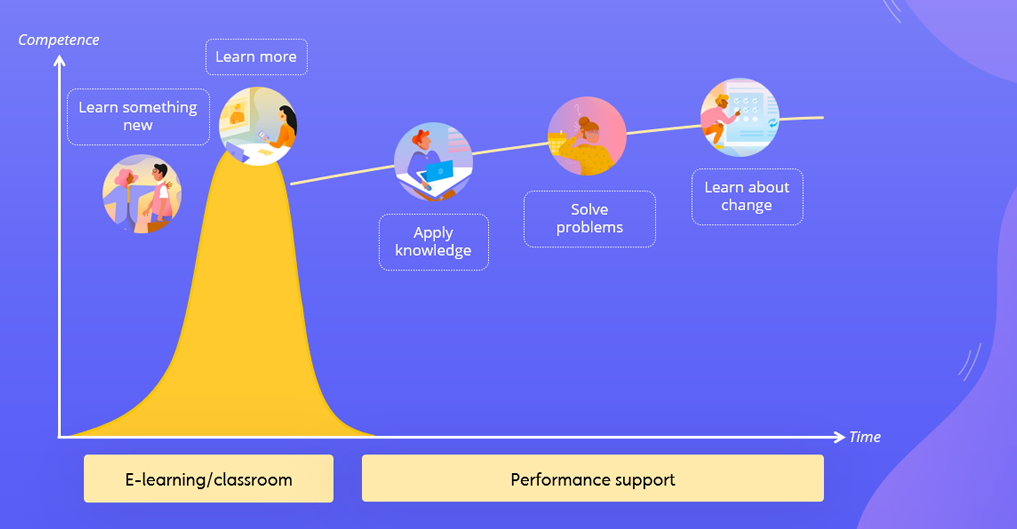Addressing Different Learning Needs:
The 5 Moments of Learning
At InfoCaption, we are inspired by the "5 Moments of Learning Need" model, designed to meet various learning needs through tailored support. This approach helps organisations deliver the right learning experience at the right time, ensuring employees have the knowledge they need throughout their learning journey.
In the illustration, you'll see five key learning moments and when they occur along the learning path. The first two moments focus more on formal training and introduction, while the remaining three address performance support during day-to-day tasks (informal learning).

New – When learning something for the first time
This occurs when an employee is introduced to something entirely new, such as starting a new role or using a new system. At this stage, providing a broad overview is essential without diving too deep into specific task details.
More – When You Want to Learn More
Sometimes, we want to expand our knowledge on something we're already familiar with, either out of curiosity or because it's needed for work. This can happen through informal self-study or structured learning opportunities the organisation provides.
Apply – When You Need to Apply Knowledge
Employees need practical, just-in-time support while performing a task, focusing on the "how" rather than the "what." Information must be easily accessible (preferably one click away) and presented in a simple, user-friendly format tailored to the specific task, organisation, or situation.
Solve – When Facing a Problem
Unexpected issues or challenges may arise during work. In these moments, employees need quick access to relevant information to troubleshoot and continue their tasks. The solution should be easily searchable and straightforward to understand.
Change - When you need to learn from change
With the increasing pace of change in today's workplace, employees must adapt to new methods and processes. It's essential to consider how best to deliver learning in these situations to ensure that new ways of working are effectively communicated and adopted.

